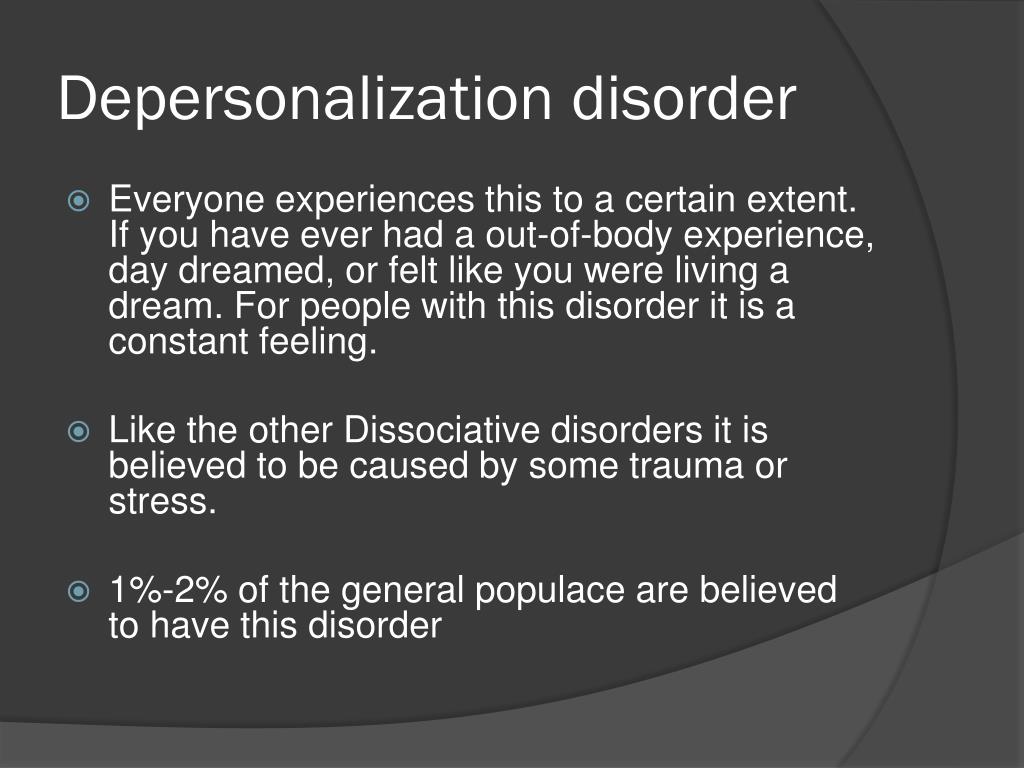

Often accompanied by derealization (DR), a threatening sense of unreality from the environment, DP can assume various nuanced forms in the clinical practice ( 5, 9- 15). It means that individuals may feel like an automaton or may have a sensation of estrangement from their own mental processes, emotions, or body shape ( 5- 8). It is characterized by persistent or recurrent episodes of the patients’ detachment from him/herself. Depersonalization (DP), a complex and obscure subject of clinical psychiatry, has become a recurrent topic of psychopathology in the last 10 years ( 5). On the other hand, Zolpidem unexpectedly causes as much memory impairment as Triazolam does, if not more, at least in young healthy adults ( 4). Zolpidem exerts hypnotic effect is comparable to short- and medium-acting benzodiazepines, and showed similar or possibly fewer adverse reactions at the therapeutic doses ( 2), except for gastrointestinal disturbances, which appear to be more common as well as cause visual hallucinations, especially in women. This property may account for their apparently milder withdrawal effects. Zolpidem is an imidazopyridine agent indicated for the short-term treatment of insomnia ( 1, 2).ĭue to its milder and lower problematic side effects, chemically distinction from benzodiazepines, and apparent selectively binding to a subset of benzodiazepine receptors, it has gained popularity as an alternative to benzodiazepine for the treatment of insomnia ( 3). Zolpidem Depersonalization Derealization 1. Therefore, we should assess medications such as Zolpidem as well as psychiatric conditions that are associated with causing symptoms of depersonalization. There were no results relevant to the research question.

We performed research questions regarding the side effect of Zolpidem and etiology of derealization as well as depersonalization in all of the databases and citation indexes. Medication-associated with depersonalization symptoms are typically resolved once the inducing drug has been withdrawn. Medications and medical as well as psychiatric conditions, which are associated with causing symptoms of depersonalization, are reported here and the postulated pathogenesis by which some of these drugs induced depersonalization symptoms is also discussed. His symptoms ceased after treatment was stopped and recurred when he restarted the drug. He complained that he suffered from a strange feeling in his limbs and hands along with a feeling of change in the environment immediately after the medication. The subject was a 24-year-old male patient who has consumed 20 mg of Zolpidem for the treatment of primary insomnia. symptoms of depersonalization may occur in individuals who suffer from additional mental disorders, various medical conditions, and/or have taken certain medications. The purpose of this study is to present the case of Depersonalization and Derealization induced by Zolpidem.


 0 kommentar(er)
0 kommentar(er)
